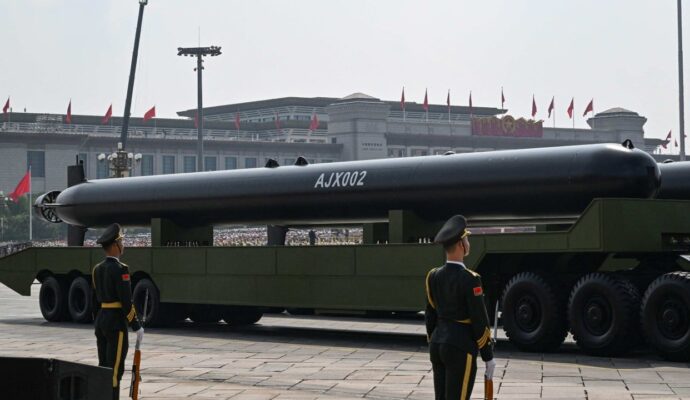Shanghai is setting out to construct the world’s largest innovative infrastructure cluster – with the most comprehensive components and the strongest services – by the end of 2026, according to details of a new three-year plan released on the government’s website on Thursday.
And China’s regional powerhouses, including Shanghai, are uniquely positioned to take the lead.
“Accelerating the construction of new infrastructure is an important means to expand effective investment and seize new opportunities in the digital economy,” Gu Jun, director of the Shanghai Municipal Development and Reform Commission, said in an official statement. “It is also a key starting point to promote digital transformation and shape new advantages for future development.”
In tumultuous tech war with US, China goes all in on computing power
In tumultuous tech war with US, China goes all in on computing power
According to details of the plan posted to the Shanghai government’s website, the city will broaden and upgrade the coverage of 5G mobile services, while establishing advanced infrastructure for computing power, big data and technology innovation, as well as an effective smart city network – from traffic control to medical facilities.
To attract capital to fund what is expected to be a 220-billion-yuan (US$30 billion) undertaking, local authorities will offer investment opportunities to the private sector, Gu said, noting that the list includes about 100 projects that should raise about 120 billion yuan.
Additionally, a new round of new infrastructure loans with preferential interest rates is expected to be officially launched by the end of the year, he added.
This is Shanghai’s second straight three-year plan to boost hi-tech infrastructure. The one that began in June 2020 brought in investments totalling 252.2 billion yuan, and 30 per cent of that came from the private sector, according to official figures.
The megacity’s share of new infrastructure investment among all fixed-asset investments also increased from 8 per cent in 2020 to 9.6 per cent in 2022.
With traditional economic engines sputtering and unreliable, including the property sector, Beijing has made it clear that the nation’s digital economy should be a catalyst for economic growth.
China’s tech hub of Shenzhen in Guangdong announced in February that it would add 10,000 5G base stations this year as part of a plan to bolster internet connectivity and digital economic activity in the metropolis.
Computing power is vital in supporting the operations of artificial intelligence (AI), big data and cloud computing – underpinning everything from ride-hailing services to daily business operations and chatbots like ChatGPT.
With more than 41 per cent of its economic output generated from the digital economy, China has the world’s second-largest computing capacity, after the United States.


